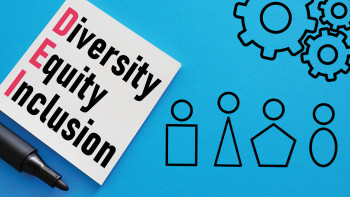
Don’t let business lose the human touch
Technology has been running on a triumphant track. Though created and borne by man, it has the terrible habit of fast overwhelming its creator. We can feel how new technologies are tightening their grip on our lives.
It is no longer a joke that smartphones are using us instead of we using these ubiquitous machines even as they get tinier but mightier by the day. Phantom vibrations, where individuals feel their phone vibrating in their pocket when it has not, are becoming a reality.
In the fast-paced world of business management, the allure of emerging technologies often promises increased efficiency and productivity. However, beneath the surface lies a troubling trend: our growing dependence on these technologies is gradually eroding our autonomy and cognitive abilities. From smartphones to artificial intelligence, the pervasive influence of these tools is reshaping the way we work, think and interact.
Consider the all-pervasive presence of smartphones in the corporate environment. Once hailed as productivity boosters in the corporate environment, smartphones have morphed into distractions that blur the boundaries between work and personal life. Employees are expected to be constantly accessible, tethered to their devices even during off-hours. As a result, burnout rates are on the rise, and the quality of work suffers as attention is fragmented by incessant notifications and digital distractions.
Moreover, the advent of AI-driven decision-making systems poses a double-edged sword for business leaders. While these technologies promise data-driven insights and predictive analytics, they also threaten to dull our critical thinking skills. When algorithms dictate strategic decisions or hiring processes, human judgement takes a back seat, leading to a lack of innovation and diversity of thought within organisations.
Furthermore, the rise of automation in industries such as manufacturing and logistics has profound implications for the future of work. While robots and AI systems can streamline operations and reduce costs, they also displace human workers, leading to job insecurity and economic inequality. As individuals become increasingly reliant on technology for employment, their sense of agency and self-reliance diminishes, perpetuating a cycle of dependence.
In the realm of marketing and consumer behaviour, the influence of technology is equally pronounced. Algorithmic recommendation systems tailor content to individual preferences, creating filter bubbles that limit exposure to diverse viewpoints and ideas.
The phenomenon of ‘decision fatigue’ exemplifies the cognitive toll of our technological dependence. With an abundance of choices and information at our fingertips, decision-making becomes overwhelming, leading to mental exhaustion and indecision. This not only hampers individual performance but also impedes effective leadership and strategic planning within companies.
As managers navigate the mind-boggling digital landscape, it is essential to strike a balance between harnessing the benefits of technology and preserving our human faculties. By cultivating critical thinking, fostering digital literacy and promoting ethical use of technology, we can mitigate the adverse effects of our technological dependence and reclaim control over our lives and businesses.
As Bill Gates once said, “The advance of technology is based on making it fit in so that you don’t really even notice it, so it’s part of everyday life.” However, this seamless integration comes at a cost, as we find ourselves increasingly enslaved by the very tools designed to enhance our lives. It is imperative that we remain vigilant and mindful of the impact of technology on our autonomy and cognitive abilities.
Similarly, Sherry Turkle, Abby Rockefeller Mauze Professor of the Social Studies of Science and Technology at MIT, warns of the dangers of technology-mediated communication, stating, “We expect more from technology and less from each other.” In our quest for efficiency and connectivity, we risk sacrificing genuine human connection and meaningful interactions. This loss of empathy and understanding further exacerbates our dependence on technology, perpetuating a vicious cycle of isolation and detachment.
In the business world, the pressure to adopt and integrate emerging technologies can sometimes overshadow the need for critical reflection and ethical consideration. As Former Google CEO and Executive Chairman Eric Schmidt cautioned, “We don’t need you to type at all. We know where you are. We know where you’ve been. We can more or less know what you’re thinking about.” This level of surveillance and intrusion into personal privacy raises profound ethical questions about the role of technology in our lives and the extent to which we are willing to sacrifice our autonomy for convenience. Let us not forget that every business person is a customer too.
Ultimately, the path forward requires a concerted effort to re-evaluate our relationship with technology and reclaim control over our lives and cognitive faculties. As Apple co-founder Steve Jobs famously remarked, “Technology is nothing. What’s important is that you have faith in people, that they’re basically good and smart, and if you give them tools, they’ll do wonderful things with them.”
It’s time to heed this wisdom and ensure that technology serves as a tool for empowerment rather than enslavement.






